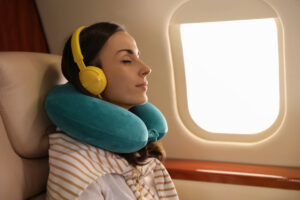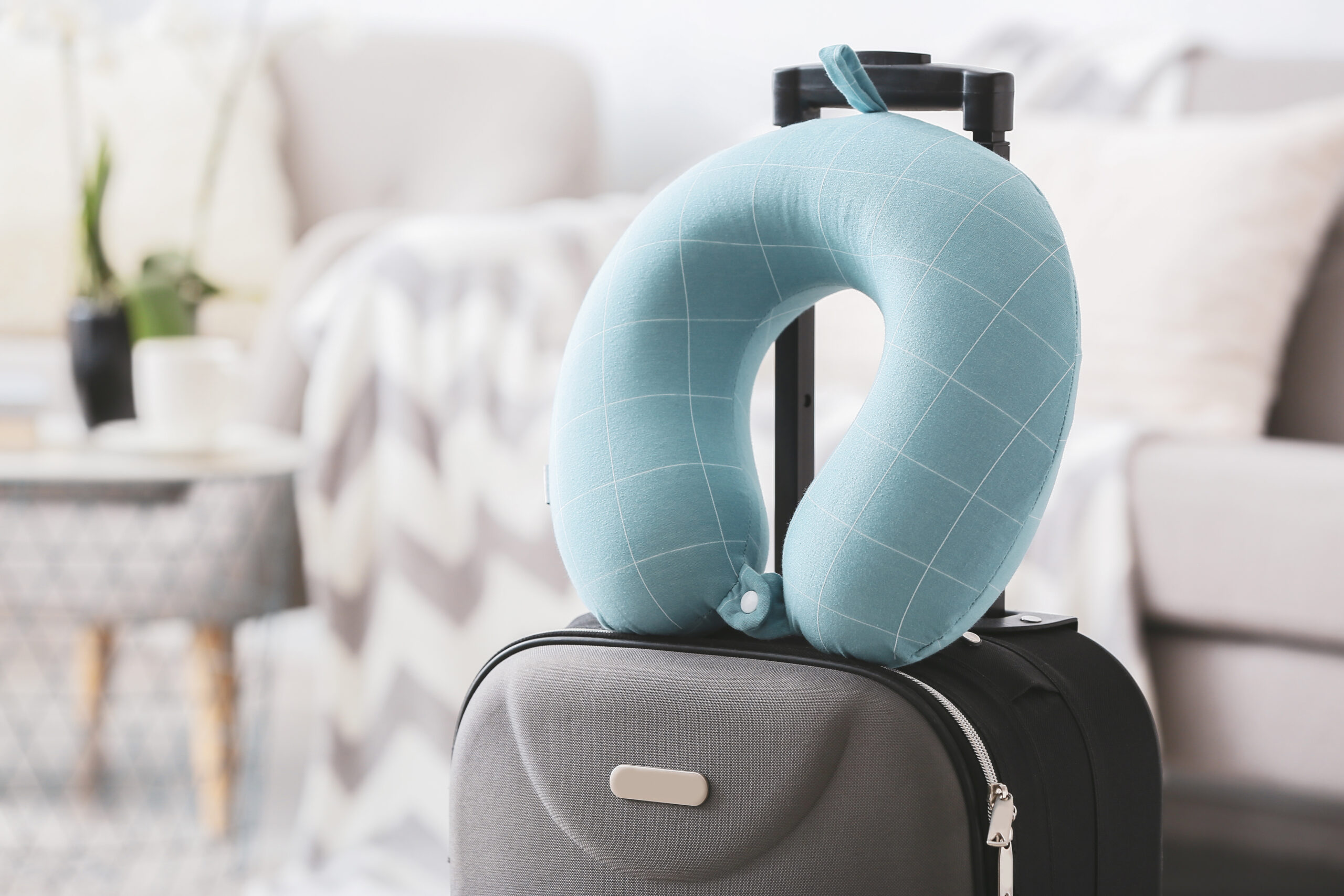Shoulder pain can be frustrating, limiting your ability to perform even the simplest daily tasks. Whether caused by an injury, arthritis, or overuse, finding effective treatment is essential. For many patients, shoulder arthroscopy offers a…
Traveling in a car, train, or airplane and trying to sleep while sitting in an upright, cramped position can cause your back and neck to be positioned awkwardly, causing back, shoulder, and neck pain. However, if you have travel neck pillows, that should solve that problem, right? Not necessarily.
If you experience neck pain when traveling, an orthopedic neck doctor at Orthopedic & Laser Spine Surgery can help you determine whether travel pillows will help for a pain-free travel experience. Once you know why you’re experiencing neck pain when you travel, you can incorporate solutions to travel without expecting neck pain.
Why Neck Pain Happens While Traveling
When you sleep sitting up, your neck muscles relax, causing your head to drop or loll to one side or the other. This can cause strain on your neck muscles and cervical spine. Add to that the movements of cars or turbulence on airplanes that can make your head move suddenly in another direction, potentially causing further injury.
There are six groups of muscles that can be strained or damaged if your head is not correctly supported when you sleep while traveling. The muscles and functions that can be impeded by injury include:
- The levator scapulae muscle, which lifts the shoulder blade, bends the neck to the side and rotates the head.
- The sternocleidomastoid (SCM) muscle, which rotates the head to the side, tilts the chin upward and protects the carotid artery.
- The trapezius muscle extends the head upward, extends the neck backward, rotates the head, or lifts the shoulder blade.
- The erector spinae muscles, which support posture, rotate the neck and extend the neck backward.
- The deep cervical flexors stabilize the cervical spine and flex the neck forward.
- The suboccipital muscles help with head extension and rotation.
Whenever any of these muscles are strained or injured, you will feel pain when moving your head or neck in a direction related to the strained muscle. To minimize your chances of straining these muscles, any kind of support you can incorporate when you sleep in an upright position is better than no support at all.
All Memory Foam Travel Pillows Are Not Created Equal

However, most travel pillows don’t have enough height to support the neck and chin properly. As a result, you’ll still find that your chin will tilt down at an angle, or your head will tilt to the side when using these pillows, which isn’t very useful in minimizing neck pain. Also, most of these pillows have no way of stabilizing your head or body, meaning that if your head or body slumps, the pillow will slump with you.
How to Pick a Travel Neck Pillow That Will Support Your Neck
A proper travel pillow must support your head and neck and be easy to pack. Travel neck pillows are designed to provide optimal support and comfort, helping to prevent neck strain and improve sleep quality during long journeys. A travel pillow with about 5 inches of memory foam on all sides should be enough height for support. The downside to having a travel pillow with enough height for support is that it may interfere with wearing earrings or headphones.
Another feature of a good travel pillow is that the back should be flat or angled backward, not to push your head forward. A good travel pillow may have straps to attach to the plane or car seat or some other way of stabilization, like non-slip panels on the back, to keep you and your head from slumping forward or on either side.
Other common causes of neck pain to be aware of while traveling are poor posture and being in one position for a long time. To prevent travel-related neck pain from muscle tightness and stiffness, take breaks and do some stretches or exercises to reset your posture and move your neck muscles. Make sure you hydrate yourself during or after a long journey. Dehydration can cause muscle fatigue, cramping, and pain.
Ask the Florida Orthopedic Neck Doctors at Orthopedic & Laser Spine Surgery For Help Today
Whether your neck pain results from bad travel sleep habits or something more serious, you should consult the orthopedic doctors today. We can find out what is causing your neck pain and supply advice and solutions on how to relieve it.
The orthopedic doctors at OLSS specialize in neck pain management and non-invasive solutions to treat your neck pain regardless of how your neck pain occurred. If you’re experiencing neck pain and want relief, call us at 407-712-8789 or complete our contact form for examinations, tests, and a neck pain treatment plan.

